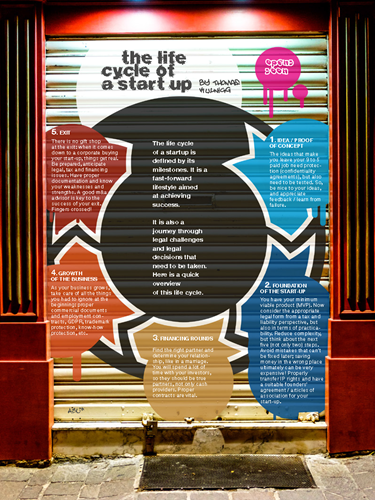10 January 2019
roadmap
austria
The life cycle of a start-up

The life cycle of a startup is defined by its milestones. It is a fast-forward lifestyle aimed at achieving success. It is also a journey through legal challenges and legal decisions that need to be taken. Here is a quick overview of this life cycle.
1.IDEA / PROOF OF CONCEPT
The ideas that make you leave your 9 to 5 paid job need protection (confidentiality agreements), but also need to be tested. So, be nice to your ideas, and appreciate feedback / learn from failure.
2. FOUNDATION OF THE START-UP
You have your minimum viable product (MVP). Now consider the appropriate legal form from a tax and liability perspective, but also in terms of practicability. Reduce complexity, but think about the next five (not only two) stepsa. Avoid mistakes that can't be fixed later; saving money in the wrong place ultimately can be very expensive! Properly transfer IP rights and have a suitable founders' agreement / articles of association for your start-up.
3. FINANCING ROUNDS
Find the right partner and determine your relationship, like in a marriage. You will spend a lot of time with your investors, so they should be true partners, not only cash providers. Proper contracts are vital.
4. GROWTH OF THE BUSINESS
As your business grows, take care of all the things you had to ignore at the beginning: proper commercial documents and employment contracts, GDPR, trademark protection, know-how protection, etc.
5. EXIT
There is no gift shop at the exit: when it comes down to a corporate buying your start-up, things get real. Be prepared, anticipate legal, tax and financing issues. Have proper documentation and know your weaknesses and strengths. A good m&a advisor is key to the success of your exit. Fingers crossed!
-----
This article was up to date as at the date of going to publishing on 10 December 2018.
Thomas
Kulnigg
Partner
austria vienna